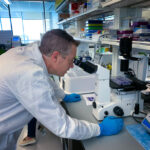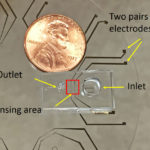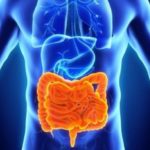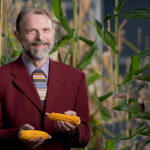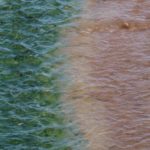As the novel coronavirus continues its global rampage, scientists around the world are racing to stop its spread. Dozens of projects have been launched under great pressure to deliver a vaccine as quickly as possible. Among the virologists trying to unlock the pathogen’s secrets is Christopher Mores, the director of a new lab devoted to […]
Biochemistry and Microbiology
Rutgers Develops New Portable Tool to Analyze Microbes in the Environment
Device could be used to find threats to ecosystems Imagine a device that could swiftly analyze microbes in oceans and other aquatic environments, revealing the health of these organisms – too tiny to be seen by the naked eye – and their response to threats to their ecosystems. Rutgers researchers have created just such a […]
SEBS Faculty Among Top 50 Rutgers Experts in the News
Media turn to Rutgers experts for insights on current issues, research and trends Rutgers faculty share their knowledge and commitment to academic excellence many ways – through teaching, research, mentorship and service beyond the university community. In addition to scholarly talks and publishing in prestigious journals, many also share their expertise through the news media, […]
City Apartments or Jungle Huts: What Chemicals and Microbes Lurk Inside?
Scientists find more industrial chemicals, fungi in urbanized homes What are the differences between life in a walled urban apartment versus in a jungle hut that’s open to nature? Researchers at Rutgers and other universities found city homes to be rife with industrial chemicals, cleaning agents and fungi that love warm, dark surfaces, while jungle […]
Red Algae Thrive Despite Ancestor’s Massive Loss of Genes
Study may spawn ways to genetically alter and control red seaweeds You’d think that losing 25 percent of your genes would be a big problem for survival. But not for red algae, including the seaweed used to wrap sushi. An ancestor of red algae lost about a quarter of its genes roughly one billion years […]
New AI Method May Boost Crohn’s Disease Insight and Improve Treatment
Rutgers-led study uses artificial intelligence to examine genetic signatures of inflammatory bowel illness Scientists have developed a computer method that may help improve understanding and treatment of Crohn’s disease, which causes inflammation of the digestive tract. The Rutgers-led study, published in the journal Genome Medicine, used artificial intelligence to examine genetic signatures of Crohn’s in […]
In Memoriam: Joachim Messing (1946-2019), University Professor, Waksman Institute Director, and Wolf Prize in Agriculture Winner
By Executive Dean Robert M. Goodman. Joachim (Jo) Messing, the Selman A. Waksman Professor of Molecular Genetics, University Professor, and longtime director of the Waksman Institute of Microbiology at Rutgers University, has died at age 73. Messing made pioneering and foundational contributions that underpin the modern fields of genetics, genomics, and evolutionary biology. He […]
Gut Check Time
Martin J. Blaser and Maria Gloria Dominguez-Bello are investigating the microbiome, the vast constellation of bodily bacteria that regulate our health—and may hold the key to medicine’s future. When microbiologist Martin J. Blaser gives lectures on the microbiome—the term used to describe the trillions of competing and cooperating bacteria, or microbes, teeming in and on […]
Rutgers STEM Ambassador Program Inspires New Cohort of New Jersey High Schoolers
This year’s Rutgers STEM Ambassador program, an interactive, hands-on science, technology, engineering and math (STEM) initiative for mostly 9th and 10th grade students in a campus setting, drew about 60 participants from Atlantic, Essex, Hudson, Mercer, Middlesex, Passaic and Union counties. Chad Ripberger, Rutgers 4-H agent from Mercer County, and Janice McDonnell, 4-H SET agent, […]
Red Algae Steal Genes from Bacteria to Cope with Environmental Stresses
Research could lead to designer algae that produces fuels and cleanup chemicals It’s a case of grand larceny that could lead to new fuels and cleanup chemicals. Ten species of red algae stole about 1 percent of their genes from bacteria to cope with toxic metals and salt stress in hot springs, according to a […]

